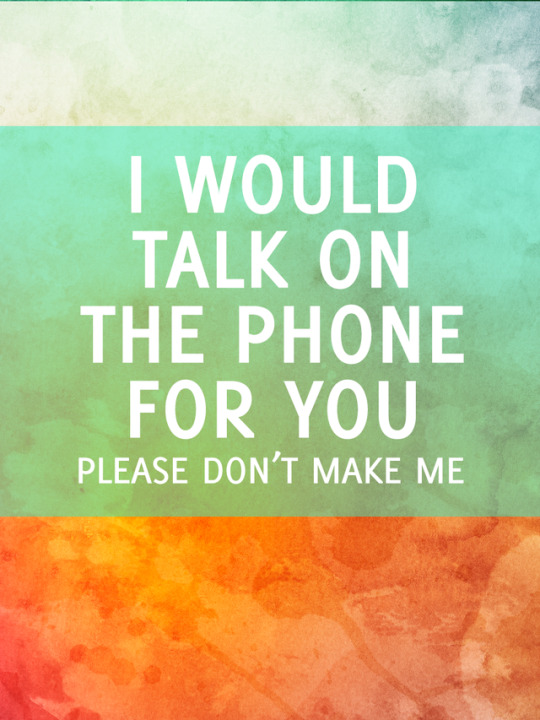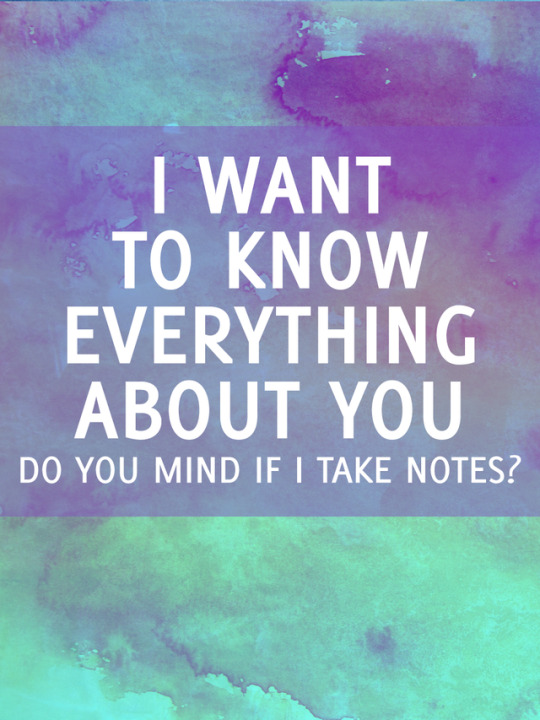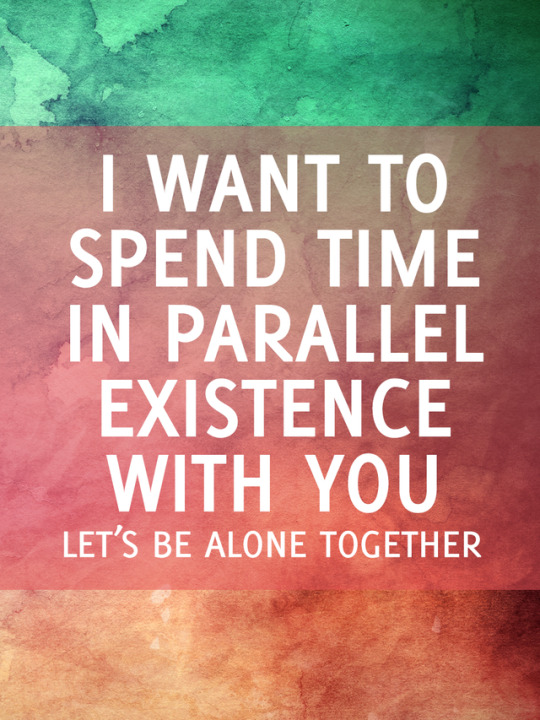Text
It’s my boys and me 💚 Look at the gorgeous background (inspired by my tattoo)! The colours! Boo and Jiji’s handsome little faces!
I can’t recommend Michaela and their art highly enough. You can find more of her work (image described) here: https://www.ogrefairy.com/

Disabled Beauty Portrait for Myth
Timelapse:
149 notes
·
View notes
Note
Hello, I would like to ask why so many autistic children become so attached to screen time. I know the formal reason, I am also aware that all people can become attached to television, video games, or a tablet. I suppose my question is how do you engage an autistic child when they only want to watch tv, play video games, or play on a tablet? They do not care about toys, books, or anything else other than jumping. How do I become part of their word if they don't want to be bothered?
It’s always difficult to provide good advice based on the amount of information that will fit in a tumblr ask, so my response will be fairly general, but I hope still useful to you.
It sounds like you’re feeling a lot of pressure to engage with your child in the perceived “right” way. I think that’s the crux of the issue here.
When we say that parents can and should become a part of their children’s world, that statement should be taken at face value. It doesn’t mean, “craft a perfect, Today’s Parent-approved world around your child.”
Your child’s world is currently watching television, playing video games, and using a tablet. Quality children’s programming teaches story structure, facilitates echolalia and language development, and models friendship and how to navigate social situations. Playing video games develops hand-eye coordination, teaches problem solving, and builds confidence. A tablet is exactly what you make of it and the apps you put on it.
It also sounds like you are feeling resentment, which is neither productive nor necessary. That’s on you. As a parent, your job is to support and love your child. That means that you need to manage your emotions. Journalling, therapy, and self-care are ways to do that.
Now, instead of thinking of screen time as inherently bad and toys and books as good, consider what ways you could meet your child where they are at and use their interests to facilitate learning. Try offering different kinds of apps: there are apps that teach music, drawing apps, apps to make simple animations, apps that allow you to track the flight of airplanes, apps that show you the stars above you right now. There are apps that even read children’s books and allow kids to read along.
Keep offering new things, and see what interests take hold. Always have captions on, so that television time is also teaching literacy. Provide video games in different genres and using different mechanics. Don’t be afraid to think outside the box or feel constrained by what is typical or arbitrarily “age appropriate” when it comes to interesting or educational apps, games, etc.
Play video games with your child. Ask them about their favourite apps. Discuss the plot and themes of the television shows they watch, and try “writing” an episode of their favourite show together. Jump together. Talk about how and why jumping feels good to their body. Talk about why they like what they like. Keep engaged.
And most importantly, remember that there is no right or wrong way to have a childhood, and that the problem is not that your child “doesn’t want to be bothered.” They are not trying to frustrate or disappoint you. The problem is that you are clinging onto expectations.
Let go and just meet them where they are. It takes more thought, more intention, and more care, but it will be a lot more fun and bring you closer.
925 notes
·
View notes
Note
Is it okay to reblog your posts even though I’m not autistic? I’m specifically talking about the ones about autism acceptance.
Very okay! Please do!
50 notes
·
View notes
Note
sometimes i feel like the only autistic person who is interested in sports. (and then i saw the most recent thing you reposted and apparently lack of interest in sports is common, which was isolating to read tbh) is that true, do you think?
Not at all. An autistic friend of mine is a self-professed jock, very spatially/athletically inclined, and has participated in lots of different athletic type activities and sports. There are lots of autistic people who are interested in sports.
I’m sorry that the common autistic experience of being apathetic towards sports has been isolating for you, but I promise that you’re not alone
86 notes
·
View notes
Note
Dear Amythest, for starters I want to say you're very smart. I have Autism or Asperger Syndrome by old name, and I have learnt more about Autism and myself thanks to you. Keep on making Youtube-videos and writing blog. My question is: is it normal if an autistic person doesn't have special interests? I have many interests and hobbies, but not really a special interest. The closest things to special interests are writing poems, jellyfishes and walking.
Thank you.
If by normal you mean, “it happens” then yes, that is normal. Fixations, special interests, passions, obsessions, whatever you want to call them are a very common autistic experience, but not a universal one.
If by normal you mean “okay”, like, “am I a valid autistic person?” then yes. You are so dang valid. Keep doing you. Poems, jellyfish, and walking are all wonderful things.
71 notes
·
View notes
Note
when i was in the 5th grade or so, i was evaluated for autism but the doctor said i didn’t have it but i’m a teenager now and i seem to have a lot of autistic traits and some of my autistic friends say i act autistic so.. is it worth trying to get re-evaluated or not
Honestly, probably not, but it’s difficult to give good advice without knowing *why* you’re considering being re-evaluated.
If you are autistic you do not need a professional diagnosis to identify as such, to participate in autistic culture, etc.
If it helps, I validate you :)
56 notes
·
View notes
Text
messy update
“Where have you been?”
“Are you okay?”
“Why haven’t you made any new videos?”
As much as I’ve joked around and said that I was fine despite the endless online hate, the stalking, the threats of violence, the plagiarization, the BoycottToSiri mess... as it turns out, I have been repeatedly traumatized over the past five years.
I wasn’t lying. I just didn’t realize what a toll being a “public figure” in the autism community--and every terrible thing that entails--was taking on me.
I’m trying. I really am. But also I have nightmares about uploading videos, and I throw up or feel faint when I try to film, and stress makes my chronic health stuff worse so... I have a lot to fight through to get anything done. It’s difficult to even log in to this tumblr account.
And as I’ve grown and learned, I have become kind of... embarrassed? about how I have conducted myself, about my role in spreading some common-but-maybe-not-ideal ideas and popularizing certain language used in the community. Not all of my older work makes me want to curl up under a blanket and hide forever, but a lot of it does.
Turns out, as much as I try to be perfect and endlessly optimistic and self-caring, I’m actually not that. I’m trying to give myself time to work through all this.
I am endlessly grateful to all of the people who have supported me in my work, who have lovingly educated and corrected me when needed, who have looked up to me and validated me as a person. Thank you, all.
275 notes
·
View notes
Photo






They’re here! Because you demanded it, and because I love you – more neurodivergent/Autistic Valentine’s Day cards! Please feel free to use and share these as you will. Just do remember to give me credit, please <3
[Image description: A series of six Valentine’s Day cards featuring bright watercolor backgrounds with complimentary coloured bars containing white text. The cards read:
Your stims are stupendous; your happy makes me happy
I would talk on the phone for you; please don’t make me
You’re on my red list; let’s get out of here
I want to know everything about you; do you mind if I take notes?
I want to spend time in parallel existence with you; let’s be alone together
Your echolalia is enchanting; let’s back and forth
End image description.]
Created using these papers.
EDIT: “Red list” references these communication badges, your red list being the short list of people who are allowed to talk to you when you are wearing the red “don’t talk to me” badge.
2K notes
·
View notes
Text
not so commonly talked about autism traits
~poor/abnormal posture
~trouble with left, right, and other directions
~disinterest in sports/physical activity
~rituals with no outcome
~large or unique vocabulary
~lack of organization
~intense compassion/empathy
~intense anger or no anger at all
~connections with animals
~difficulty understanding pop culture, styles, trends, etc
48K notes
·
View notes
Text
me, as a child lining up stuff in rows: now this is how you have fun
126K notes
·
View notes
Text
if ur ever considering making a post being like: “when you’re x kind of disabled you get treated well but if you’re the kind of disabled I am you get treated poorly”, please consider: they hate all of us.
3K notes
·
View notes
Text
Thank you for sharing <3
undefined
youtube
undefined
youtube
undefined
youtube
A few videos from Amythest Schaber’s series Ask An Autistic. Please take time to explore their other videos to find answers to other questions you may have about autism.
226 notes
·
View notes
Text
Growing up autistic often involves not being believed. Your experiences of being tired, stressed, and overwhelmed are constantly minimized. “How could you be tired? You haven’t done anything all day.” “How could you be stressed? You’re eight.” “Look at the other children, how much fun they’re having. If we go home now you’ll miss out on all the fun!” If you find certain tasks particularly challenging, you are told it really isn’t that hard, you just have to [brief and unhelpful description of task].
There are no upsides to denying or minimizing someone’s pain, except that it frees the person doing the minimizing from having to deal with it. Even if the child is “only doing it for attention”, worst case scenario they give their child attention. What’s so terrible about that? Because the alternative is that they are teaching their child not to value and trust their own experience, and that is immensely damaging. It can mean the child might not recognize when they’re being emotionally abused. It can lead to mental health issues, burnout, and many other problems.
Not everyone responds to a given situation in the same way. If someone tells you something bothers them, just because you’re not bothered by it doesn’t mean they’re lying or exaggerating.
10K notes
·
View notes
Text
Autism & Victimization
Somewhere I read that a symptom of autism/ ASD is a tendency to feel victimized. Feel. And I couldn’t get that out of my head because there is a difference between saying that and saying “a tendency to be” victimized. Saying “feel” carries the implication that the victimization is in one’s head.
There’s probably a reason people with ASD feel victimized:
1. Autistic children are more likely to be bullied.
2. Autistic children are more likely to be abused.
3. Autistic children are more likely to experience sexual abuse and the abuse is less likely to be recognized because symptoms of being abused are often misinterpreted as “normal” autistic behavior.
4. Autistics are more likely to be sexually assaulted because they are often taught compliance from a young age in therapies like ABA.
[Edit with more links on this topic]:
Info On Autism & Sexual Assault
Personal Essay On Why Autistics Are Vulnerable
ABA Teaches Compliance Not Consent
5. Autistics are more likely to be unemployed.
6. Employers discriminate against autism, autistics are more likely to be bullied by their coworkers, and many autistics lose their jobs because of it.
7. Schools find loopholes to discriminate against autistic children.
8. Autistiscs have a higher risk of experiencing police brutality.
9. Autistics are being murdered by their own caregivers, and the murderer is often given a lighter sentence because the victim was viewed as a burden.
10. Autistics suffer because they are not given effective medical care.
So, there’s the problem. Not that autistics have a tendency to “feel” victimized.
5K notes
·
View notes
Text
On being autistic in a speech-obsessed world
You are a young child, and in this universe, the large majority of people communicate by writing words on paper. Unfortunately for you, your natural method of communication is by speaking.
When you speak, no one seems to understand what you are saying. They seem confused, embarrassed, and even angry when sounds come out of your mouth. Your mother publically laments your inability to communicate like the majority. The older you get, the more obvious your difference in communication becomes.
People begin to shush you, place their fingers over your mouth, or even duct-tape your mouth shut when you speak. When you enter kindergarten you spend entire school days being taught how not to laugh, exclaim in delight, speak your teacher’s name to get their attention or blurt out answers to questions vocally.
Your parents and therapists spend hours and hours pushing a pen into your hand and forcing your hand to the paper, withholding praise and affection until you do. But while writing comes so easily and quickly to everyone else, you find it nearly impossible on your best days, and an insurmountable challenge on your worst.
Along with a different natural method of communication, you have a motor disorder that affects your ability to hold a pen and write. While other children your age are scrawling out long lines of chatty dialogue, blowing through page after page of paper, it takes you six months just to eke out the letters of your name.
But you try, and you work at it— as if you have any other option. You learn to stay quiet, to not laugh or sob aloud, to put pen to paper instead of expressing yourself with your vocal cords. You find a system that works for you and your motor disorder, and although it takes longer, you find that you can communicate by carrying around index cards and using one card per word.
This means that you are constantly carrying around a backpack weighed down with packs and packs of index cards, which tires you out. Sometimes you drop your cards or lose a few, and often people will get impatient watching you lay out your lines of words to make sentences and walk away before you can answer their question. For no reason that you can understand, people can get offended if they can tell that you’re re-using your cards. There are still some days where forming letters is too difficult, or the wrong words come out.
But by the time you’re a teenager you’ve done it— you can, in your parents’ words, “speak properly”, and your parents are thrilled. Never mind that, out of ease, you often reuse the same cards over and over, even if those words don’t exactly apply. Never mind that you’ll answer “no” because it’s easier to write than “yes,” or that you’ll avoid answering at all because pulling out your index cards is such a pain.
Never mind that other people’s pens move so fast across their notebooks and their words are printed so small and close together that you struggle to understand half of what anyone says to you. You can print at all, and that’s enough.
You don’t know that there are other ways. You don’t know that some people like you speak by typing onto a tablet until one day you see the technology, featured on a sappy news story about a young non-writing child, a child like you once were.
The realization stuns you. No more fumbling with index cards, watching in despair as they catch in the wind and scatter while people look on in pity or (worst of all) laugh! No more forcing your hand to squeeze each and every hard-won letter out of a pen! With that technology, you could have entire conversations, order your own meal, ace a job interview!
When you explain the technology to your parents and beg for the chance to finally, truly express yourself, they deny you outright. No, your mother scrawls slowly, that’s for people who can’t write at all. You can write just fine! You almost seem normal now! We didn’t pay for thirty hours of therapy a week for six years for you to throw down your pen and give up.
2K notes
·
View notes
Text
i want you all to know that there is an artist (carmen papalia) who, after he started using a white cane, assembled a 12 foot long white cane and began using it in downtown vancouver. the length of the cane made it functionally useless as a device and the only purpose it served was making him an obstacle for sighted people. dare i say… 2019 goals
201K notes
·
View notes
Text
some of y’all don’t seem to know how to appropriately interact with artists and content creators, so here’s a few tips:
1. constructive criticism is a criticism that clearly points out something you feel can be improved upon in a piece while, preferably, offering suggestions for how to improve said thing.
2. constructive criticism is not always appropriate or wanted. here’s when constructive criticism is appropriate:
a creator requests criticism
you are with a creator in a setting specifically designed for giving critiques like a workshop or lesson (this is really just an extension of the point above)
a creator is causing harm to others, like creating racist art, exploiting people, or endorsing dangerous behavior, and needs to be called out
you are discussing a piece of art released for wider public consumption (ie not a piece someone made for fun or for their friends) somewhere independent of the creator (ex: sharing a movie review on a blog and not in the creator’s inbox)
3. creators are people and not content machines working ‘round the clock. they do not always want to discuss their work nor is their work their sole designing factor. it’s weird and presumptuous to assume they are open to criticism from strangers at any given time.
4. unless a creator is causing harm or being a dick, manners are not hard to have
885 notes
·
View notes